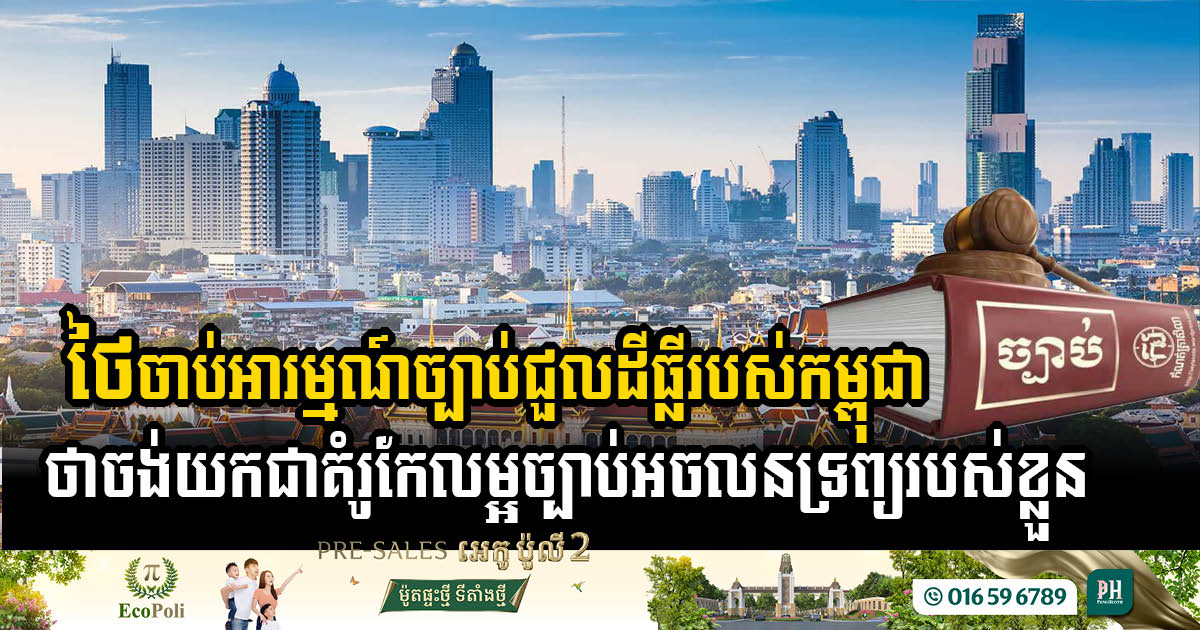Ministry of Tourism to Transform the Birthplace of Samdech Techo Hun Sen into a Historical Site
The Ministry of Tourism is set to embark on an ambitious project to convert the birthplace of Samdech Techo Hun Sen into a historical site. This initiative aims to preserve the legacy of the former Prime Minister for future generations and has garnered strong support from Samdech Men Sam An, the King’s Personal Advisor. During […]
The government has decided to plant large trees as a border around Tonle Sap Lake in the 3rd Zone
In a significant move for environmental conservation, the Government has announced plans to plant watershed trees as border belts between the boundary markers in the 3rd Zone around Tonle Sap Lake. This initiative, detailed in Letter No. 696 SJKH dated April 25, 2025, from the Council of Ministers, represents a collaborative effort involving the Ministry […]
Government and Private Sector Unite for Affordable Housing Initiative in Cambodia
In a pivotal move to enhance the affordable housing landscape in Cambodia, the Ministry of Land Management, Urban Planning and Construction has forged a partnership with AGENT21 GLOBAL. A Memorandum of Understanding was signed on April 24, 2025, to advance affordable housing development projects catering to low- and middle-income families across 25 provinces and cities. […]
Government Extends Tax Incentives for Stalled Projects in Sihanoukville Until 2028
In a significant move to rejuvenate its construction sector, the Ministry of Economy and Finance announced today the continuation of additional tax incentives for stalled building projects in Sihanoukville. This initiative, aimed at developments underway since 2016, will remain in effect until the end of 2028. According to an official notice, the Royal Government’s decision […]
Thailand Eases Loan-to-Value Rules to 100%, to Jumpstart USD 486 Billion Debt-Laden Property Sector
Thailand’s central bank has announced a major relaxation of mortgage lending rules, raising the loan-to-value (LTV) ratio to 100% for all housing contracts beginning May 2025 through June 2026—an aggressive intervention aimed at reviving the nation’s sluggish real estate sector, which continues to reel from oversupply, weak demand, and soaring household debt, according to World. […]
Kampong Speu Province Completes Comprehensive Land Survey
The Government of Cambodia has officially announced the successful completion of a systematic land survey in Kampong Speu province, which has surveyed a total of 1,088,095 parcels of land. This significant milestone was celebrated during a ceremony chaired by His Excellency, Deputy Prime Minister Hun Many and His Excellency, Deputy Prime Minister Say Sam […]



 ខ្មែរ
ខ្មែរ







